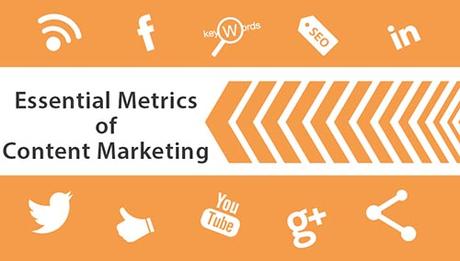Did you know that your content marketing strategy is likely to impact all of your customer service interactions?
Too many websites are built meticulously, but, end up using content that does not connect with the customer. If you are seeking to expand your business reach, drive sales and increase profitability by using the Internet as a medium, your website and its content are the main aspects that can make or break your business's profitability and reputation.
So, how do you measure the results of your content marketing efforts or your content marketing strategy?To begin with, you need to know the metrics behind content marketing. With my experience most of the content marketers measure unique visitors, pageviews by visitors, pageviews, time (spent exploring on the page), shares, bounce rate, ad clicks and comments. However, they seem to be missing out on sales and lead generation metrics, which happen to be the key metrics used to track content marketing results.

A Content Marketing Strategy That Drives Results
While readership and ad revenue were the accepted yardsticks for content's success in the past, but, today some sort of conversion and brand awareness are also taken as vital metrics for measuring the success of a content strategy.
You've written a great article about one of the trending topics of the day. You have been able to garner views as well. But no one has shared your content, and no one is talking about you or the article.
This arises a question?How come your target audience does not feel the need to share your content or promote you among others?
In my opinion, this could be attributed to a number of reasons, your content is dull, you are not talking to the right audience or you are not promoting your blog in the right channel. What you need is a content strategy, one that is held together by measurable goals including increased traffic to your website / blog. You should be able to develop a strong online brand presence, improve credibility and drive more social media traffic.
Track Results Using Google Analytics
Between creating a content strategy and implementing it, you need to benchmark key measurables (which might vary depending on your strategy) and use appropriate tools such as Google Analytics to measure page views, visits, traffic volume and time spent on site. You can even use the Goals feature in Google Analytics to measure the success of content on your website. If you want to measure these metrics of third party website, then you can use tools like, Follow, you can find my review of Follow.

Also, there are a number of social monitoring tools which you can use to manage, measure and analyze social media and content marketing initiatives.
Finally, the Essential Metrics That You Should not MissSo, by now you might ask, what are some of the essential metrics? I must say, there are four types or categories of content metrics, namely consumption, sharing, lead generation and sales. Even among these, there exist overvalued metrics, like the sharing metrics. But you can rely on lead generation and sales metrics to determine the potential business from your content. Content strategy metrics and the KPIs you are likely to gauge your content marketing success are essential to prove ROI. You can easily figure out which of them align with your goals and add value to the content you produce and finally measure it based on them as well.
